
1995 recordings of the superb saxophone trio of Evan Paker on tenor & soprano, Daunik Lazro on alto & baritone, and Joe McPhee on alto & soprano, plus alto clarinet and pocket trumpet, a group that went undocumented until this live concert tape at Willisau was discovered.
Out of Stock
Quantity in Basket: None
Log In to use our Wish List
Shipping Weight: 3.00 units
Sample The Album:
Evan Parker-tenor saxophone, soprano saxophone
Daunik Lazro-alto saxophone, baritone saxophone
Joe McPhee-alto saxophone, soprano saxophone, alto clarinet, pocket trumpet
Click an artist name above to see in-stock items for that artist.
UPC: 5609063003970
Label: Clean Feed
Catalog ID: CF397
Squidco Product Code: 23097
Format: CD
Condition: New
Released: 2016
Country: Portugal
Packaging: Cardboard Gatefold
Recorded in Willisau, Switzerland, on May 19th 1995, by Walter Troxler
"One of the good things happening in the Nineties was the circulation in some festivals of the incredible sax trio formed by Evan Parker, Daunik Lazro and Joe McPhee. Unfortunately, just one recording documented the partnership, a homonymous album released in 1996 by the French label Vand'Oeuvre. For those who've been mesmerized by the live encounters of these three giants of improvised saxophone only some "tete-a-tete" CDs served as good consolation, namely Elan, Impulse, uniting Lazro and McPhee (1991, In Situ), and the pair Chicago Tenor Duets (2002, Okka Disk) and What If / They Both Could Fly (2013, Rune Grammofon), with Parker and McPhee dueling.
Now, thanks to Clean Feed, we can listen a second time to the three part equation in its entirety - Seven Pieces is the reproduction of what Parker, Lazro and McPhee did together at a venue in Willisau, in May 1995. The concert was recorded by the brothers Niklaus and Walter Troxler and found on cassette in a drawer all these years later. An expert in recovering old tapes, the electronic musician Jean-Marc Foussat did the editing, mixing and mastering of the music.
For our collective happiness, because what you'll find here goes deeper in the abstract lyricism testified by the previous and very hard to find release. The British, the French and the American guys were having a fantastic night, and history benefits from that."-Clean Feed
Artist Biographies
• Show Bio for Evan Parker "Evan Parker was born in Bristol in 1944 and began to play the saxophone at the age of 14. Initially he played alto and was an admirer of Paul Desmond; by 1960 he had switched to tenor and soprano, following the example of John Coltrane, a major influence who, he would later say, determined "my choice of everything". In 1962 he went to Birmingham University to study botany but a trip to New York, where he heard the Cecil Taylor trio (with Jimmy Lyons and Sunny Murray), prompted a change of mind. What he heard was "music of a strength and intensity to mark me for life ... l came back with my academic ambitions in tatters and a desperate dream of a life playing that kind of music - 'free jazz' they called it then." Parker stayed in Birmingham for a time, often playing with pianist Howard Riley. In 1966 he moved to London, became a frequent visitor to the Little Theatre Club, centre of the city's emerging free jazz scene, and was soon invited by drummer John Stevens to join the innovative Spontaneous Music Ensemble which was experimenting with new kinds of group improvisation. Parker's first issued recording was SME's 1968 Karyobin, with a line-up of Parker, Stevens, Derek Bailey, Dave Holland and Kenny Wheeler. Parker remained in SME through various fluctuating line-ups - at one point it comprised a duo of Stevens and himself - but the late 1960s also saw him involved in a number of other fruitful associations. He began a long-standing partnership with guitarist Bailey, with whom he formed the Music Improvisation Company and, in 1970, co-founded Incus Records. (Tony Oxley, in whose sextet Parker was then playing, was a third co-founder; Parker left Incus in the mid-1980s.) Another important connection was with the bassist Peter Kowald who introduced Parker to the German free jazz scene. This led to him playing on Peter Brötzmann's 1968 Machine Gun, Manfred Schoof's 1969 European Echoes and, in 1970, joining pianist Alex von Schlippenbach and percussionist Paul Lovens in the former's trio, of which he is still a member: their recordings include Pakistani Pomade, Three Nails Left, Detto Fra Di Noi, Elf Bagatellen and Physics. Parker pursued other European links, too, playing in the Pierre Favre Quartet (with Kowald and Swiss pianist Irene Schweizer) and in the Dutch Instant Composers Pool of Misha Mengelberg and Han Bennink. The different approaches to free jazz he encountered proved both a challenging and a rewarding experience. He later recalled that the German musicians favoured a "robust, energy-based thing, not to do with delicacy or detailed listening but to do with a kind of spirit-raising, a shamanistic intensity. And l had to find a way of surviving in the heat of that atmosphere ... But after a while those contexts became more interchangeable and more people were involved in the interactions, so all kinds of hybrid musics came out, all kinds of combinations of styles." A vital catalyst for these interactions were the large ensembles in which Parker participated in the 1970s: Schlippenbach's Globe Unity Orchestra, Chris McGregor's Brotherhood of Breath, Barry Guy's London Jazz Composers Orchestra (LJCO) and occasional big bands led by Kenny Wheeler. In the late 70s Parker also worked for a time in Wheeler's small group, recording Around Six and, in 1980, he formed his own trio with Guy and LJCO percussionist Paul Lytton (with whom he had already been working in a duo for nearly a decade). This group, together with the Schlippenbach trio, remains one of Parker's top musical priorities: their recordings include Tracks, Atlanta, Imaginary Values, Breaths and Heartbeats, The Redwood Sessions and At the Vortex. In 1980, Parker directed an Improvisers Symposium in Pisa and, in 1981, he organised a special project at London's Actual Festival. By the end of the 1980s he had played in most European countries and had made various tours to the USA, Canada, Australia, New Zealand and Japan. ln 1990, following the death of Chris McGregor, he was instrumental in organising various tributes to the pianist and his fellow Blue Notes; these included two discs by the Dedication Orchestra, Spirits Rejoice and lxesa. Though he has worked extensively in both large and small ensembles, Parker is perhaps best known for his solo soprano saxophone music, a singular body of work that in recent years has centred around his continuing exploration of techniques such as circular breathing, split tonguing, overblowing, multiphonics and cross-pattern fingering. These are technical devices, yet Parker's use of them is, he says, less analytical than intuitive; he has likened performing his solo work to entering a kind of trance-state. The resulting music is certainly hypnotic, an uninterrupted flow of snaky, densely-textured sound that Parker has described as "the illusion of polyphony". Many listeners have indeed found it hard to credit that one man can create such intricate, complex music in real time. Parker's first solo recordings, made in 1974, were reissued on the Saxophone Solos CD in 1995; more recent examples are Conic Sections and Process and Reality, on the latter of which he does, for the first time, experiment with multi-tracking. Heard alone on stage, few would disagree with writer Steve Lake that "There is, still, nothing else in music - jazz or otherwise - that remotely resembles an Evan Parker solo concert." While free improvisation has been Parker's main area of activity over the last three decades, he has also found time for other musical pursuits: he has played in 'popular' contexts with Annette Peacock, Scott Walker and the Charlie Watts big band; he has performed notated pieces by Gavin Bryars, Michael Nyman and Frederic Rzewski; he has written knowledgeably about various ethnic musics in Resonance magazine. A relatively new field of interest for Parker is improvising with live electronics, a dialogue he first documented on the 1990 Hall of Mirrors CD with Walter Prati. Later experiments with electronics in the context of larger ensembles have included the Synergetics - Phonomanie III project at Ullrichsberg in 1993 and concerts by the new EP2 (Evan Parker Electronic Project) in Berlin, Nancy and at the 1995 Stockholm Electronic Music Festival where Parker's regular trio improvised with real-time electronics processed by Prati, Marco Vecchi and Phillip Wachsmann. "Each of the acoustic instrumentalists has an electronic 'shadow' who tracks him and feeds a modified version of his output back to the real-time flow of the music." The late 80s and 90s brought Parker the chance to play with some of his early heroes. He worked with Cecil Taylor in small and large groups, played with Coltrane percussionist Rashied Ali, recorded with Paul Bley: he also played a solo set as support to Ornette Coleman when Skies of America received its UK premiere in 1988. The same period found Parker renewing his acquaintance with American colleagues such as Anthony Braxton, Steve Lacy and George Lewis, with all of whom he had played in the 1970s (often in the context of London's Company festivals). His 1993 duo concert with Braxton moved John Fordham in The Guardian to raptures over "saxophone improvisation of an intensity, virtuosity, drama and balance to tax the memory for comparison". Parker's 50th birthday in 1994 brought celebratory concerts in several cities, including London, New York and Chicago. The London performance, featuring the Parker and Schlippenbach trios, was issued on a highly-acclaimed two-CD set, while participants at the American concerts included various old friends as well as more recent collaborators in Borah Bergman and Joe Lovano. The NYC radio station WKCR marked the occasion by playing five days of Parker recordings. 1994 also saw the publication of the Evan Parker Discography, compiled by ltalian writer Francesco Martinelli, plus chapters on Parker in books on contemporary musics by John Corbett and Graham Lock. Parker's future plans involve exploring further possibilities in electronics and the development of his solo music. They also depend to a large degree on continuity of the trios, of the large ensembles, of his more occasional yet still long-standing associations with that pool of musicians to whose work he remains attracted. This attraction, he explained to Coda's Laurence Svirchev, is attributable to "the personal quality of an individual voice". The players to whom he is drawn "have a language which is coherent, that is, you know who the participants are. At the same time, their language is flexible enough that they can make sense of playing with each other ... l like people who can do that, who have an intensity of purpose." " ^ Hide Bio for Evan Parker • Show Bio for Daunik Lazro "The French saxophonist Daunik Lazro combines a tart, piercing tone with a quick mind and a flexible philosophy of music-making. His professional start was in bassist Saheb Sarbib's orchestra, a relationship he maintained through most of the '70s, which included three recordings. His first steps playing his own music involved a radical resizing of the cast on-stage, going from orchestra playing to solo saxophone concerts and duets. In the '80s, he busily played with many on the European improvised music scene, including bassist Jean Jacques Avenel, cellist Tristan Honsinger, violinist Carlos Zingaro, drummer Christian Rollet, and saxophonist Evan Parker, among others. In the mid-'80s, Lazro expanded his partnerships to include dance and theater projects, including work with the Company of the Chance. He formed a particularly fine trio in 1987 with fellow saxophonist Michel Doneda and the brilliant ppercussionistLê Quan Ninh, playing at many of the major European festivals and also touring in Canada. Duets with the American free improviser Joe McPhee are a 1991 discographical highlight, during a period when Lazro also began playing viola. In 1993, he started his own orchestra as well as a quartet called Outlaws in Jazz with Jac Berrocal, Didier Levallet, and Dennis Charles. In 1995, he toured Europe in a triple-threat combination with both McPhee and Parker, and the former artist also joined him in a quartet the following year with the superb British contrabassist Paul Rogers. In the late '90s, he continued involvement with a series of orchestra projects, often as a guest soloist." ^ Hide Bio for Daunik Lazro • Show Bio for Joe McPhee "Joe McPhee, born November 3,1939 in Miami, Florida, USA, is a multi-instrumentalist, composer, improviser, conceptualist and theoretician. He began playing the trumpet at age eight, taught by his father, himself a trumpet player. He continued on that instrument through his formative school years and later in a U.S. Army band stationed in Germany, at which time he was introduced to performing traditional jazz. Clifford Thornton's Freedom and Unity, released in 1969 on the Third World label, is the first recording on which he appears as a side man. In 1968, inspired by the music of Albert Ayler, he took up the saxophone and began an active involvement in both acoustic and electronic music. His first recordings as leader appeared on the CJ Records label, founded in 1969 by painter Craig Johnson. These include Underground Railroad by the Joe McPhee Quartet (1969), Nation Time (1970), Trinity (1971) and Pieces of Light (1974). In 1975, Swiss entrepreneur Werner X. Uehlinger release Black Magic Man by McPhee, on what was to become Hat Hut Records. In 1981, he met composer, accordionist, performer, and educator Pauline Oliveros, whose theories of "deep listening" strengthened his interests in extended instrumental and electronic techniques. he also discovered Edward de Bono's book Lateral Thinking: A Textbook of Creativity, which presents concepts for solving problems by "disrupting an apparent sequence and arriving at the solution from another angle." de Bono's theories inspired McPhee to apply this "sideways thinking" to his own work in creative improvisation, resulting in the concept of "Po Music." McPhee describes "Po Music" as a "process of provocation" (Po is a language indicator to show that provocation is being used) to "move from one fixed set of ideas in an attempt to discover new ones." He concludes, "It is a Positive, Possible, Poetic Hypothesis." The results of this application of Po principles to creative improvisation can be heard on several Hat Art recordings, including Topology, Linear B, and Oleo & a Future Retrospective. In 1997, McPhee discovered two like-minded improvisers in bassist Dominic Duval and drummer Jay Rosen. The trio premiered at the Vision Jazz Festival in 1998 but the concert went unnoticed by the press. McPhee, Duval, and Rosen therefore decided that an apt title for the group would be Trio X. In 2004 he created Survival Unit III with Fred Lonberg-Holm and Michael Zerang to expand his musical horizons and with a career spanning nearly 50 years and over 100 recordings, he continues to tour internationally, forge new connections while reaching for music's outer limits." ^ Hide Bio for Joe McPhee
7/15/2025
Have a better biography or biography source? Please Contact Us so that we can update this biography.
7/15/2025
Have a better biography or biography source? Please Contact Us so that we can update this biography.
7/15/2025
Have a better biography or biography source? Please Contact Us so that we can update this biography.
Track Listing:
1. Echoes Of Memory 9:02
2. Sweet Dreams Of Flying 5:11
3. Broadway Limited 6:34
4. Florid (For G.L.) 8:34
5. Concertino In Blue 5:41
6. Tree Dancing 10:36
7. To Rush At The Wind 9:16
Improvised Music
Jazz
Free Improvisation
NY Downtown & Metropolitan Jazz/Improv
London & UK Improv & Related Scenes
Trio Recordings
Parker, Evan
Joe McPhee
Clean Feed
Staff Picks & Recommended Items
Squidco's Clean Feed 50% Sale
Search for other titles on the label:
Clean Feed.


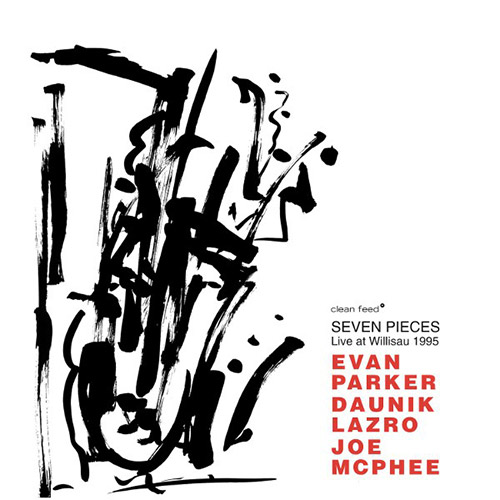



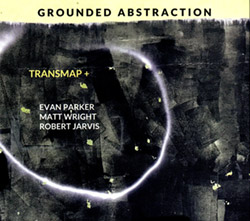
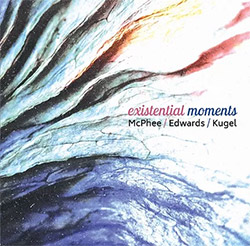
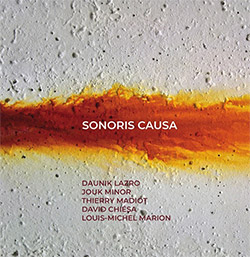

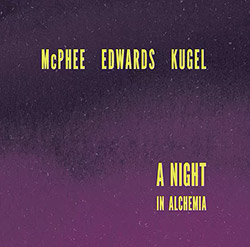
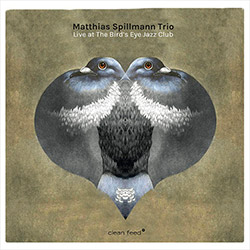



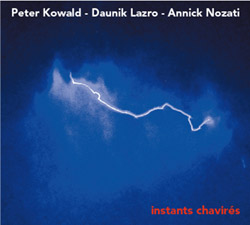



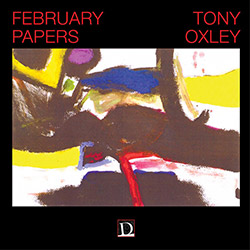





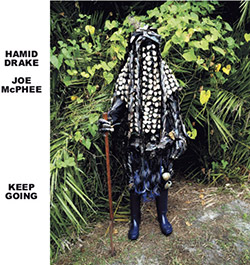

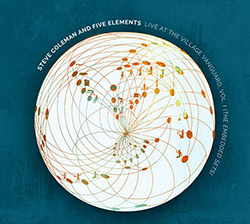





![BlueRing Improvisers: Materia [2 CDs]](https://www.teuthida.com/productImages/misc4/36513.jpg)








![Wheelhouse (Rempis / Adasiewicz / McBride): House And Home [VINYL]](https://www.teuthida.com/productImages/misc4/36462.jpg)
![+DOG+: The Light Of Our Lives [2 CDs]](https://www.teuthida.com/productImages/misc4/36009.jpg)


![Parker, Evan / Jean-Marc Foussat: Insolence [VINYL]](https://www.teuthida.com/productImages/misc4/36398.jpg)










![Deupree, Jerome / Sylvie Courvoisier / Lester St. Louis / Joe Morris: Canyon [2 CDs]](https://www.teuthida.com/productImages/misc4/36404.jpg)



![Eventless Plot | Haarvol: The Subliminal Paths [CASSETTE + DOWNLOAD]](https://www.teuthida.com/productImages/misc4/36232.jpg)










![Eventless Plot | Francesco Covarino: Methexis [CASSETTE + DOWNLOAD]](https://www.teuthida.com/productImages/misc4/36231.jpg)



![Das B (Mazen Kerbaj / Mike Majkowski / Magda Mayas / Tony Buck): Love [VINYL]](https://www.teuthida.com/productImages/misc4/36329.jpg)


![Eternities: Rides Again [CASSETTE]](https://www.teuthida.com/productImages/misc4/36247.jpg)
![Lopez, Francisco: Untitled (2021-2022) [2 CDs]](https://www.teuthida.com/productImages/misc4/36438.jpg)






![Money : Money 2 [2 CDs]](https://www.teuthida.com/productImages/misc4/35894.jpg)




![Klinga, Erik: Elusive Shimmer [VINYL]](https://www.teuthida.com/productImages/misc4/36258.jpg)
![CHANGES TO blind (Phil Zampino): Volume 9 - I Wave on a Fine Vile Mist [CD + DOWNLOAD]](https://www.teuthida.com/productImages/misc4/36061.jpg)

![Wallmart / Rubbish: Asset Protection [split CD]](https://www.teuthida.com/productImages/misc4/35900.jpg)


![+Dog+: The Family Music Book Vol. 5 [2 CDs]](https://www.teuthida.com/productImages/misc4/35897.jpg)
![Kuvveti, Deli : Kuslar Soyledi [CASSETTE w/ DOWNLOAD]](https://www.teuthida.com/productImages/misc4/36107.jpg)

![Brown, Dan / Dan Reynolds: Live At The Grange Hall [unauthorized][CASSETTE]](https://www.teuthida.com/productImages/misc4/36245.jpg)








![Palestine, Charlemagne / Seppe Gebruers: Beyondddddd The Notessssss [VINYL]](https://www.teuthida.com/productImages/misc4/36206.jpg)
![Palestine, Charlemagne / Seppe Gebruers: Beyondddddd The Notessssss [NEON GREEN VINYL]](https://www.teuthida.com/productImages/misc4/36207.jpg)

![Laubrock, Ingrid: Purposing The Air [2 CDs]](https://www.teuthida.com/productImages/misc4/35639.jpg)

![Yoko, Ono / The Great Learning Orchestra: Selected Recordings From Grapefruit [2 CDs]](https://www.teuthida.com/productImages/misc4/35841.jpg)









![Zorn, John / JACK Quartet: The Complete String Quartets [2 CDs]](https://www.teuthida.com/productImages/misc4/35609.jpg)

![Lonsdale, Eden: Dawnings [2 CDs]](https://www.teuthida.com/productImages/misc4/35480.jpg)



![Sorry For Laughing (G. Whitlow / M. Bates / Dave-Id / E. Ka-Spel): Rain Flowers [2 CDS]](https://www.teuthida.com/productImages/misc4/35985.jpg)

![Rolando, Tommaso / Andy Moor : Biscotti [CASSETTE w/ DOWNLOADS]](https://www.teuthida.com/productImages/misc4/36106.jpg)


![Electric Bird Noise / Derek Roddy: 8-10-22 [CD EP]](https://www.teuthida.com/productImages/misc4/35970.jpg)








![Elephant9 : Mythical River [VINYL]](https://www.teuthida.com/productImages/misc4/34624.jpg)



![Elephant9 with Terje Rypdal: Catching Fire [VINYL 2 LPs]](https://www.teuthida.com/productImages/misc4/35355.jpg)
![Deerlady (Obomsawin, Mali / Magdalena Abrego): Greatest Hits [VINYL]](https://www.teuthida.com/productImages/misc4/34876.jpg)







![Surplus 1980: Illusion of Consistency [CD]](https://www.teuthida.com/productImages/misc4/35069.jpg)
![Staiano, Moe: Away Towards the Light [VINYL + DOWNLOAD]](https://www.teuthida.com/productImages/misc4/35037.jpg)
![Coley, Byron: Dating Tips for Touring Bands [VINYL]](https://www.teuthida.com/productImages/misc4/17906.jpg)

![Lost Kisses: My Life is Sad & Funny [DVD]](https://www.teuthida.com/productImages/misc4/lostKissesDVD.jpg)